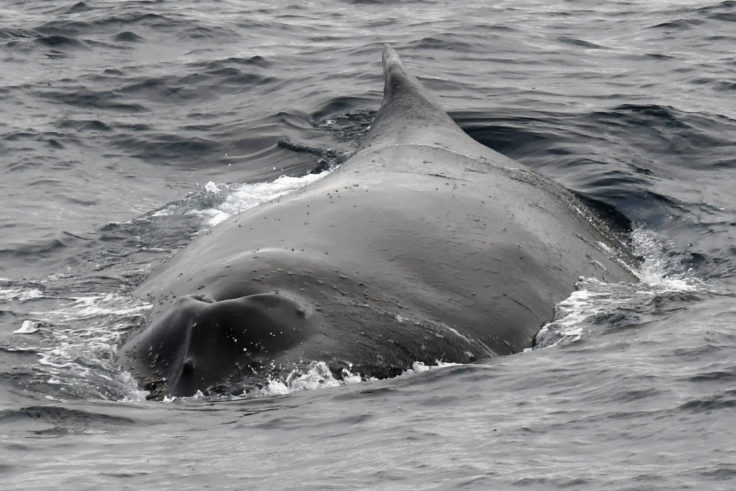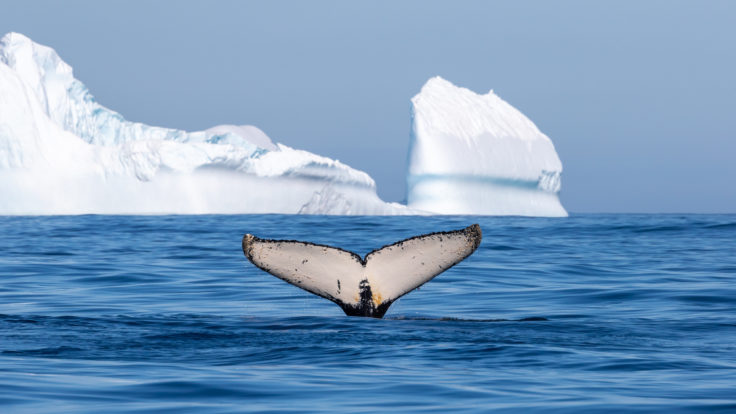Humpback whale populations are strongly recovering on their feeding grounds in the South Atlantic, with over 24,543 whales now estimated to use polar waters in the Scotia Arc each summer. Published this week in Marine Ecology Progress Series, sighting surveys conducted in 2019 by the British Antarctic Survey and the Institute of Marine Research in Norway, find that high densities of humpbacks are now returning to feed at former whaling hotspots such as South Georgia. The same surveys also confirmed that high numbers of baleen whales (43,824 baleen whales, including humpback, fin, blue and right whales) are now feeding in South Georgia and South Sandwich Islands waters in summertime.

Humpback whales were the first species to be hunted commercially in the Scotia Arc, with ~27,000 animals killed between the 1900s and 1950s, and hunting also taking place on their winter breeding grounds off Brazil. After whaling ended at South Georgia in the 1960s, whales were a rare sight for the next three decades, but in recent years feeding humpback whales are becoming a great attraction for the visitors to this UK sub-Antarctic island.
Lead author Mick Baines from Wildscope says
"Good news environmental stories have sadly become rare these days, so we are very pleased to confirm the recovery of the humpback whale population in the southwest Atlantic following the ban on commercial whaling that had decimated the whales in the last century."
The new figures have been used to calculate how much krill whales eat each year in the UK Overseas Territories. Across South Georgia and the South Sandwich Islands, baleen whales eat 4.8 - 7.2 million tons of krill, which is about 7 – 10% of the total estimated krill biomass in the region.
Senior author Dr Jen Jackson from the British Antarctic Survey says
"Humpbacks are one of a number of species that used to be abundant in this region before whaling. Their strong recovery will have impacts across the South Atlantic ecosystem, as whales consume increasing amounts of krill and increase ocean nutrient cycling where they are feeding. We need to do more research to understand the impact of this recovery on the ecosystem and on krill."

This international project included scientists from the British Antarctic Survey, Wildscope, Australian Antarctic Division, the Institute of Marine Research in Norway, the Arctic University of Norway, and University of St Andrews and received logistical support from the Government of South Georgia and the South Sandwich Islands. Surveys were organised by the British Antarctic Survey, with funding from the UK Foreign and Commonwealth Development Office as part of the Overseas Territories Blue Belt programme, from the South Georgia Heritage Trust, Friends of South Georgia Island and Darwin PLUS award DPLUS057. Norwegian surveys were funded by the Norwegian Ministry of Trade, Industry and Fisheries (project number 15208), the Institute of Marine Research (IMR), the IMR project "Krill" (project number 14246), the Association of Responsible Krill Harvesting Companies (ARK, www.ark-krill.org) and Aker Biomarine AS (www.akerbiomarine.com).






